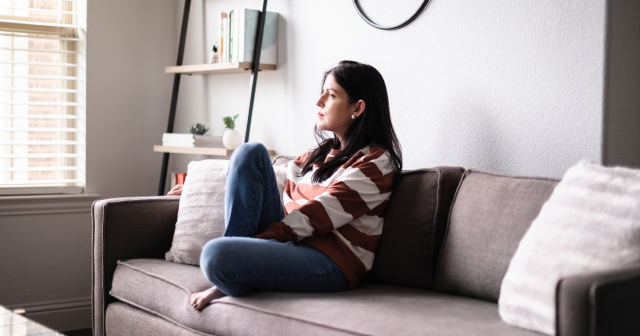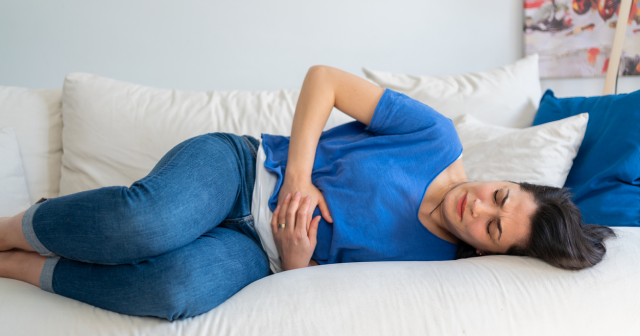The menopause can make you feel as if you're not in control of your own body, but there are ways to ease the symptoms, as these 5 self-help tips show.
1) Keep your body cool
Hot flushes and night sweats are the most common symptoms of the menopause. They're caused by a malfunction in the body’s normal methods of temperature control. They can occur even before your periods have stopped, but are most common in the first year after the your last period.
To ease hot flushes and night sweats:
- wear lighter clothing
- keep your bedroom cool at night
- do more exercise
- try to reduce your stress levels
- avoid potential "hot flush" triggers, such as spicy food, caffeine, smoking and alcohol
2) Try to relax
Psychological symptoms associated with the hormonal changes brought about by the menopause can include feeling down, anxiety, irritability, mood swings, tiredness and lack of energy.
However, the menopause can often coincide with other psychological stresses, such as dealing with ageing parents who may become more dependent, the death of older relatives or friends, divorce, or children leaving home ("empty nest syndrome"). For these reasons, it can be difficult to tell whether your psychological symptoms are a direct result of the menopause.
The following tactics can help improve your mood:
- getting plenty of rest
- regular exercise
- relaxation exercises, such as yoga and tai chi
3) Improve your sleep
Restful sleep will help you cope with night sweats and other menopausal symptoms. Improve your sleep by:
- avoiding exercise within 2 hours of bedtime
- going to bed at the same time every night
- wearing lighter clothing and keeping your room cool
4) Get regular exercise
There's evidence that women who are more active tend to suffer less from the symptoms of the menopause. Exercise is important not only for the relief of short-term symptoms, but also to protect your body from heart disease and osteoporosis .
Exercise will help keep your bones and the muscles that support them strong. It will also increase your flexibility and mobility, which will in turn improve your balance.
The benefits of exercise in preventing bone loss and fractures are well known. It's thought the best kinds of activities are aerobic, sustained and regular. Brisk walking about three times a week is a cheap, easy and great way to start exercising.
5) Stop smoking
Women who smoke have an earlier menopause than non-smokers, have worse flushes and often don't respond as well to tablet forms of HRT. It’s never too late to stop smoking.





